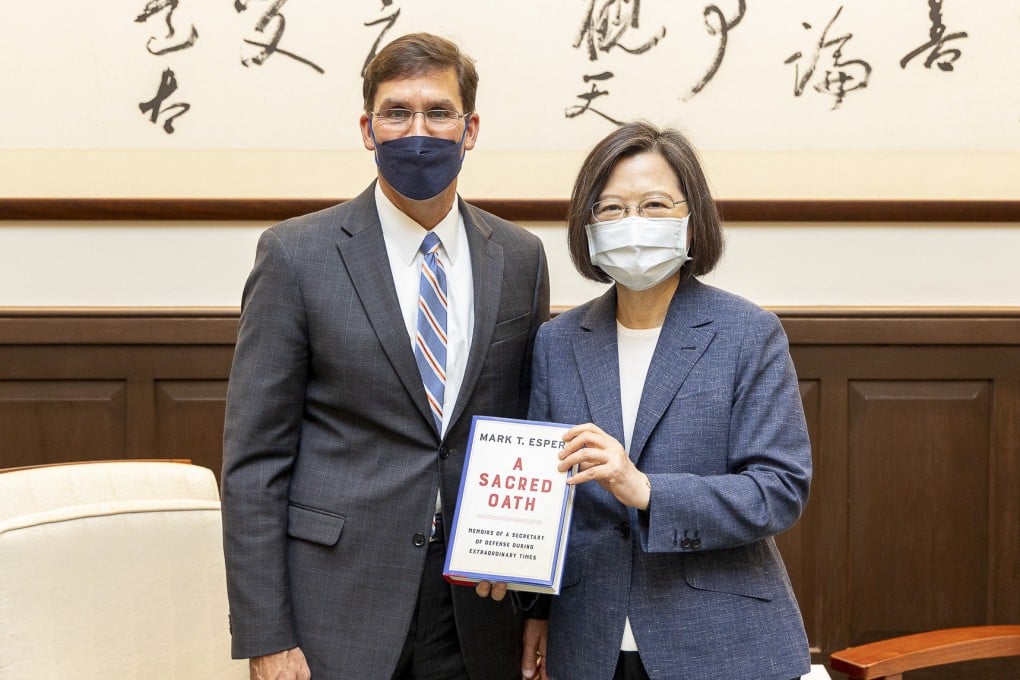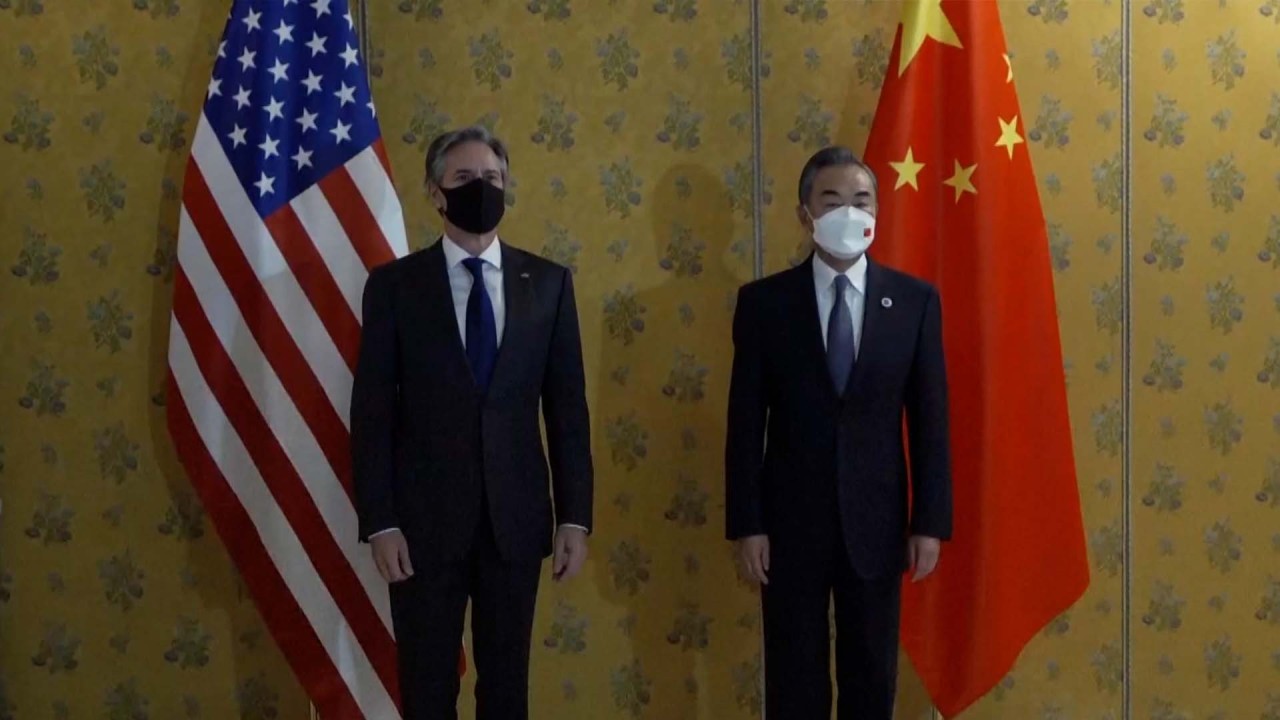Advertisement
Former US defence chief says one-China policy has ‘outlived its usefulness’
- Mark Esper tells Taiwanese president it’s time to move away from ‘strategic ambiguity’
- ‘Bold decisions’ by Taipei, such as longer military service and more defence spending, would show island is committed to standing up to Beijing, he says
Reading Time:3 minutes
Why you can trust SCMP
84

Former US defence chief Mark Esper has said the US should abandon its “strategic ambiguity” policy towards Taiwan, which leaves unclear whether it would defend the island against a potential attack from Beijing.
“It is my personal view that the one-China policy has outlived its usefulness, that it is time to move away from strategic ambiguity,” he said in a meeting with Taiwanese President Tsai Ing-wen at her office on Tuesday.
Esper is heading a three-member delegation of the Atlantic Council, a Washington-based think tank, on a four-day Taiwan visit that began on Monday.
Beijing regards the self-ruled island as part of its territory under its one-China principle. The US’ one-China policy recognises Beijing to be the legitimate government of China, but only acknowledges – and does not endorse – its position that Taiwan is a part of China.
The US, which recognises Beijing diplomatically, has maintained what the US State Department calls “robust unofficial ties” with Taiwan. It has been a long-time arms supplier for Taipei to help defend the island from potential attack from mainland China, which has repeatedly vowed to take Taiwan back – by force if necessary.
Washington has long adopted a strategic ambiguity policy of neither confirming nor denying whether it would defend Taiwan against a potential attack from Beijing.
President Joe Biden has in recent months sparked controversy by asserting the US “commitment” to defend Taiwan if it is attacked by the PLA. But the White House hastened to walk back his remarks each time, clarifying there was no change in the policy of strategic ambiguity.
Advertisement
